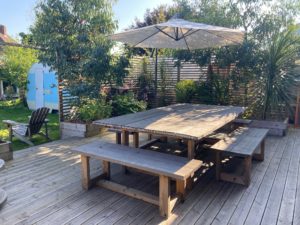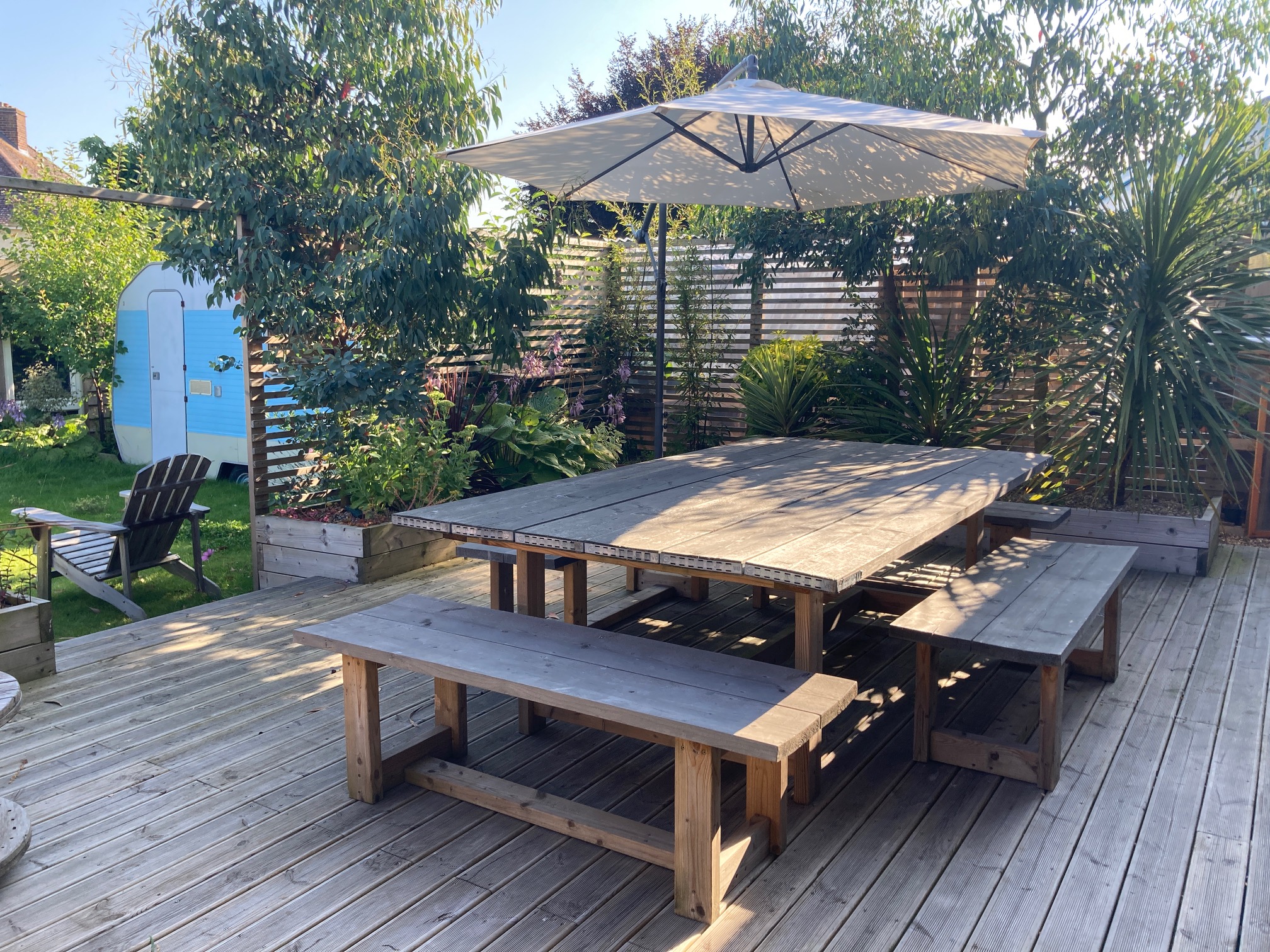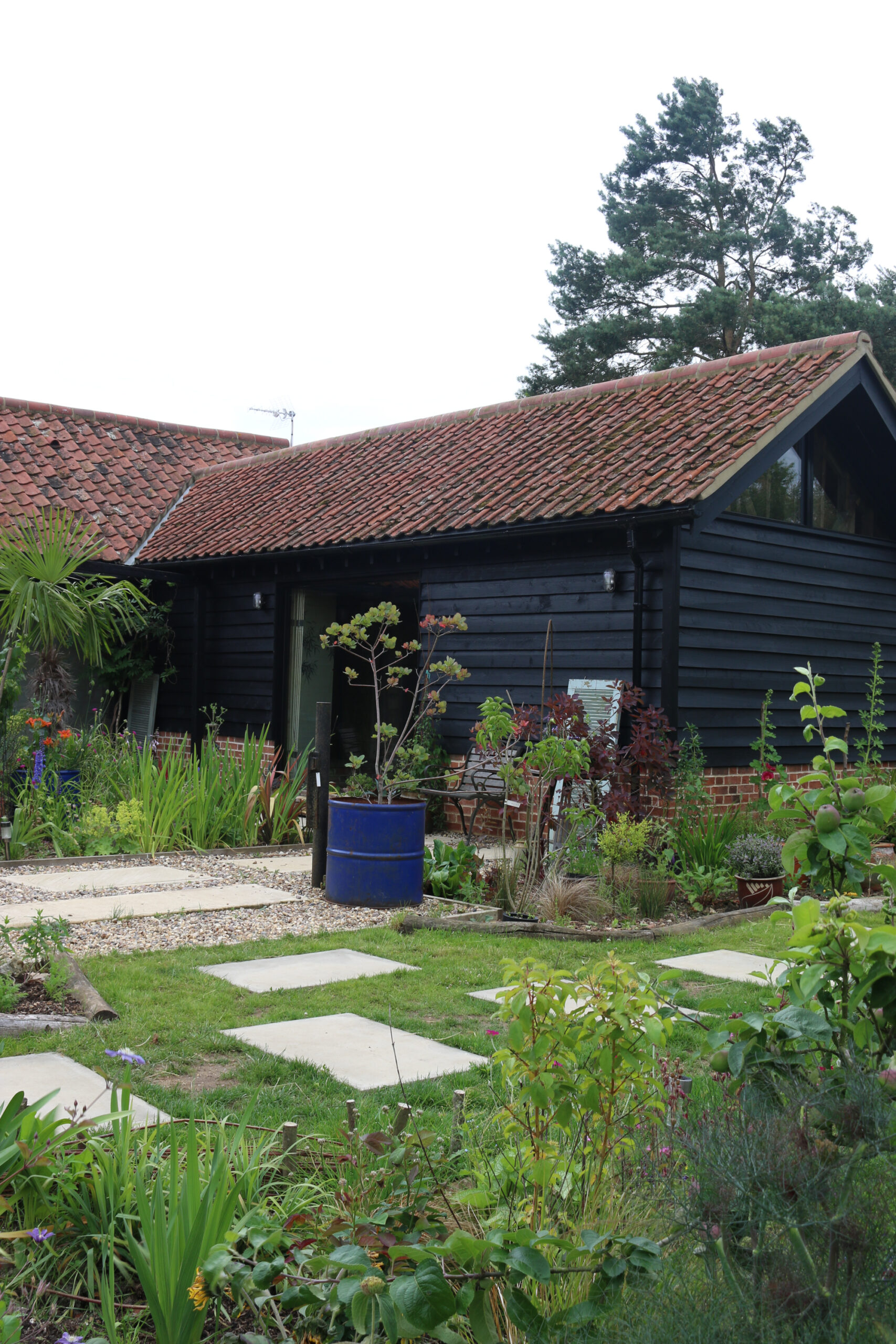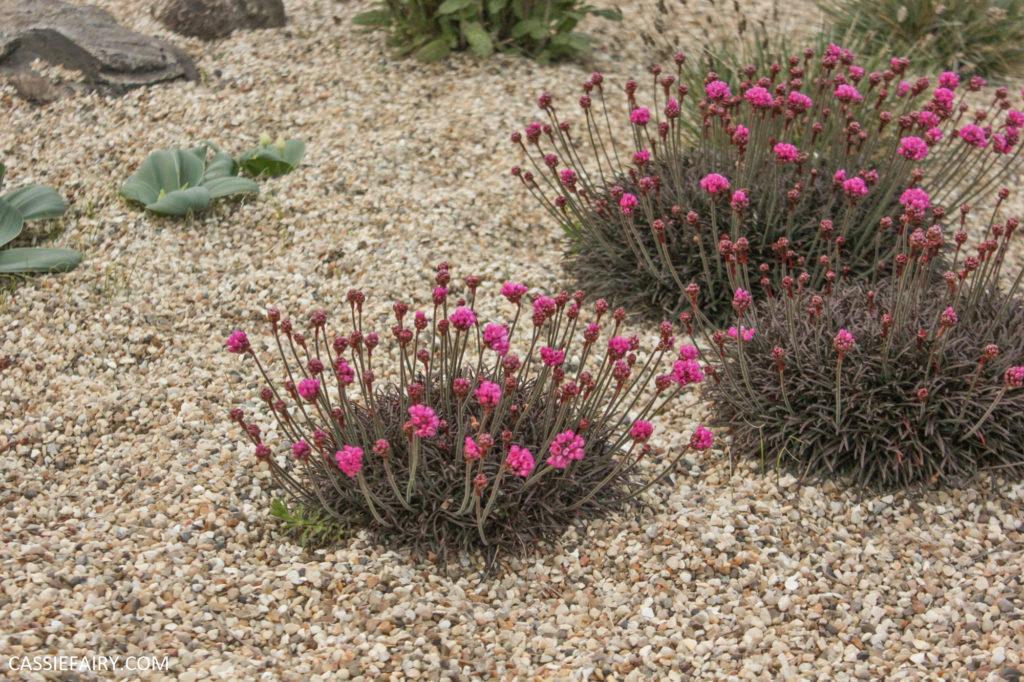
If you want to reduce your utility bills, it’s possible to cut your consumption of electricity, water and gas by making a few changes to your home and garden. Some are quick switches and easy fixes, while others are bigger projects or new installations but, whatever options you go for, you’re sure to save money on your ongoing bills by making your property more energy efficient.
Zeroscaping your garden
This is an easy DIY task that anyone can try – xeriscape or zeroscaping your front garden or backyard. Zeroscaping often involves removing most plant life, so creating a patio or deck with gravel gardens, while Xeriscaping means landscaping with native plants that have low water requirements and using succulents to fill planters and containers.
The theory behind this more sustainable way of gardening is that there’s no need to water the plants regularly, so you’re conserving water and therefore cutting the cost of your water bills at the same time.
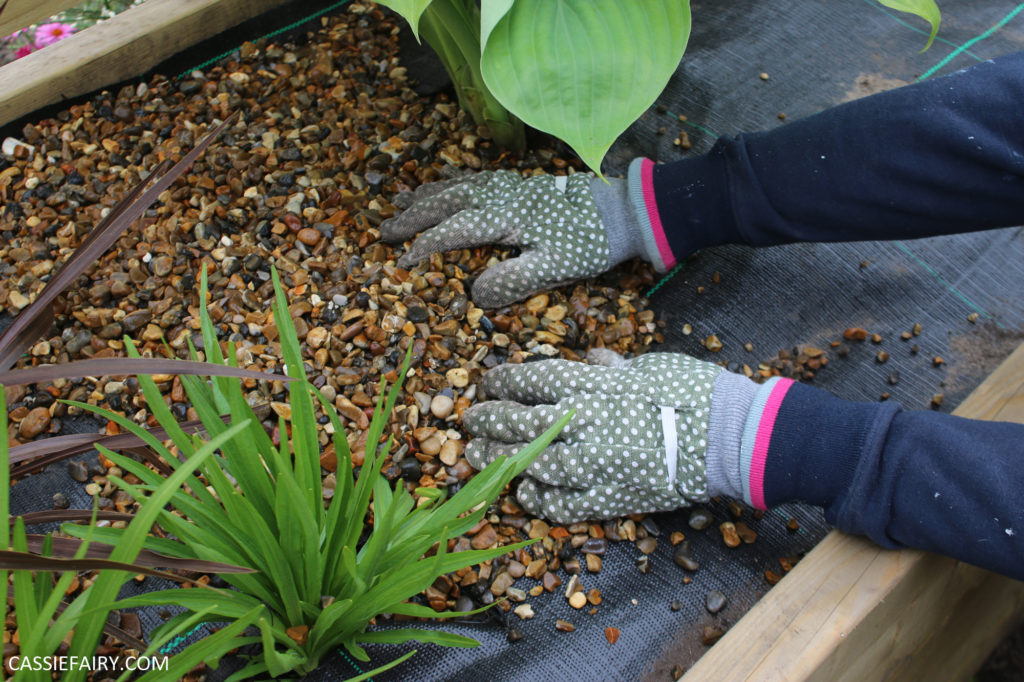
After the scorching summer we’ve just had, where many water-loving plants simply frazzled away, it makes sense to stick with just those shrubs that survived. Look around at what’s left in your borders and add more of these plants to landscape your garden to withstand drought.
My garden is full of lavender, Mediterranean herbs, sedums, wallflowers, eucalyptus and hebes, so I know that they are suitable for my zeroscaped garden. They’ll survive with rainwater alone, plus we collect water from our gutters into water butts so we can use this for future watering = no water bills for the garden.

Energy-efficient windows
A less DIY-task, but equally as helpful in lowering your utility bills, is installing energy-efficient windows. The windows in your property are the most important things when it comes to keeping your warm air in. You’ll know exactly what I mean if you’ve ever lived in a house with draughty windows! At the moment, you can sometimes see the blinds rippling when the windows are closed, so I know my windows have a leak!
Therefore, getting perfectly sealed windows with greater insulation means there will be less heat transfer from inside to out, and you’ll stay warmer indoors. This saves money on the electric and gas bills associated with heating your home.
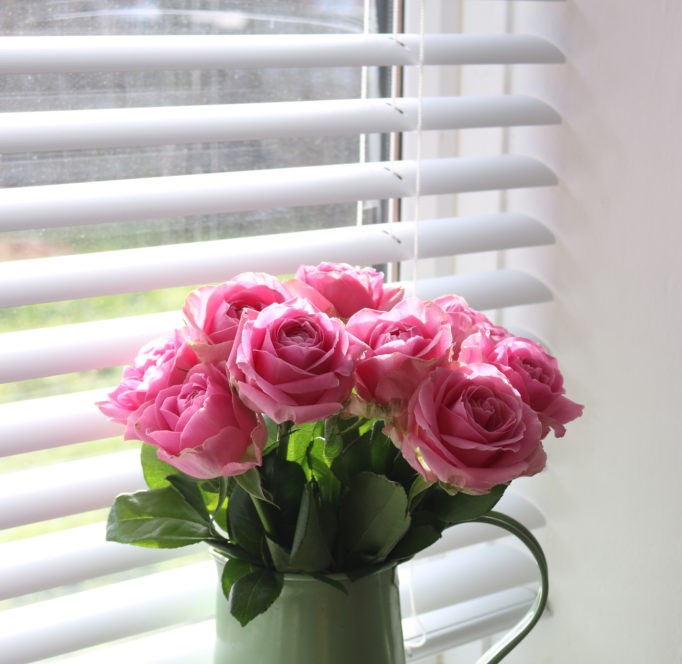
Similarly, in the summer, the windows can help to minimise heat transfer from outside to indoors, so your home won’t heat up as much as mine did this summer, and you won’t need to run electric fans or air conditioning to keep cool.
Interestingly enough, windows that are more energy-efficient aren’t much more expensive than standard windows. So, if you’re considering a new installation during your home improvement project, it might be worth getting choosing windows and doors with a higher energy rating to help reduce your energy bills in the long term.
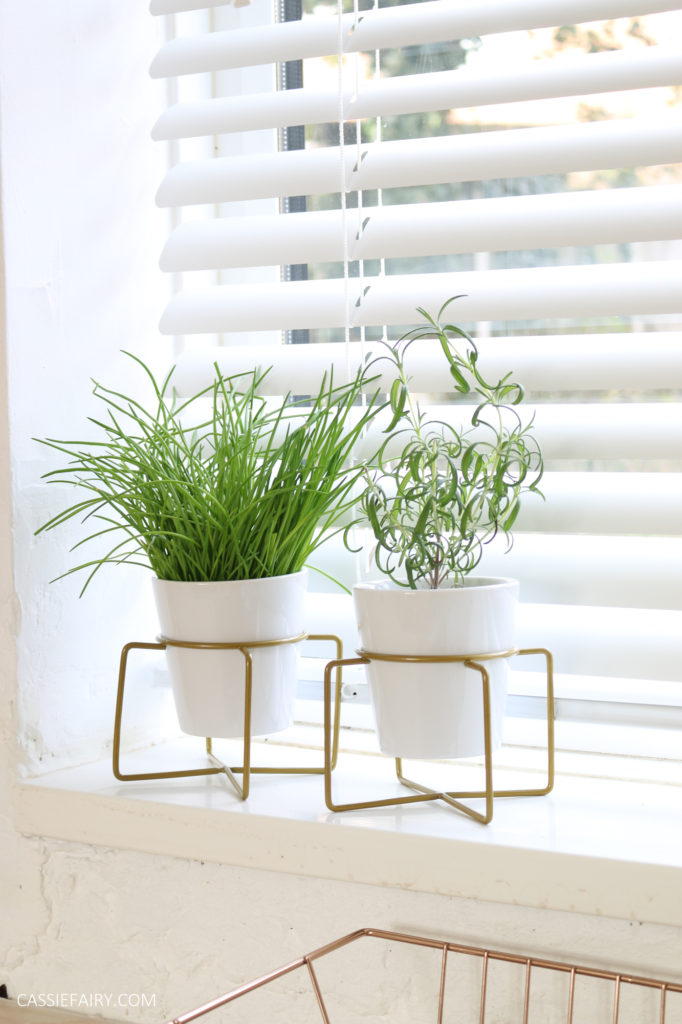
Choosing energy-star appliances
When it’s time to replace your appliances, keep an eye out for those with a good energy-star rating. This not only helps the environment but it cuts the cost of running the appliance – therefore helping your wallet, too!
If your appliance still has plenty of life in it, don’t worry – you can still lower your energy bills by using it efficiently. Take a look at the manual – I bet there will be an eco setting for washing machines and dishwashers.
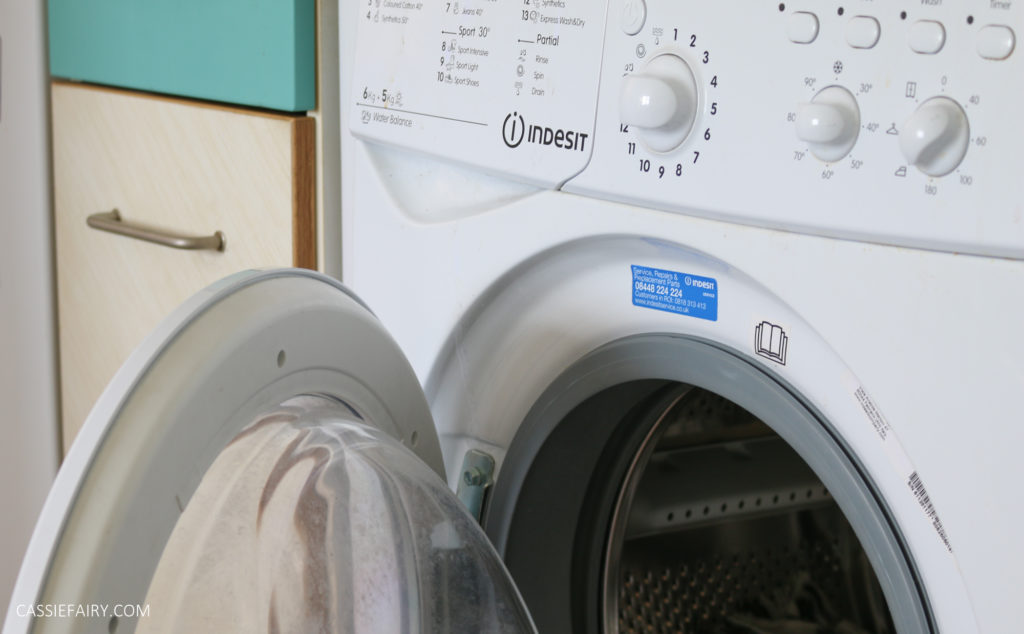
This usually washes at lower temperatures, or with less water, or with a reduced drying time, each of which will help to lower the cost of running the appliance. Also, make sure that you’re only running the machine when it’s fully loaded to get the most out of the money you’re spending by using the machine.
Also, check that your appliance is not over-loaded with clothes or dishes, so that the contents actually get washed and don’t end up needing to go through another cycle – there’s no point have an energy-star rated appliance and using an eco-setting if you’re going to have to wash items twice!
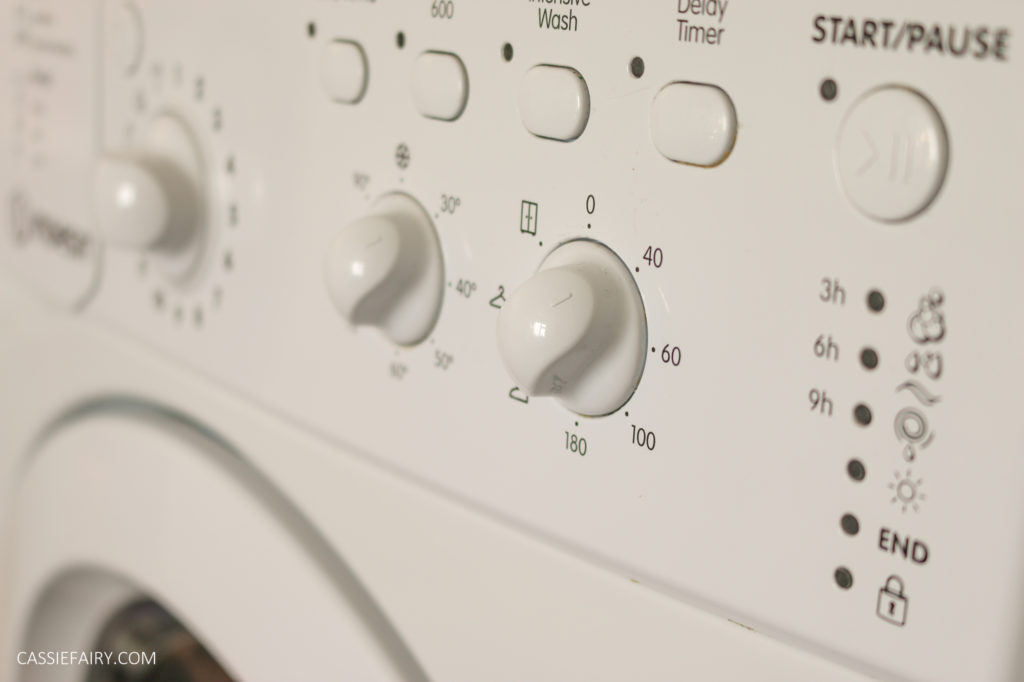
I hope these ideas will give you inspiration for creating a more eco-friendly and energy-efficient home. Let me know your own energy-saving hacks, I’d love to hear how you’ve managed to cut the costs of your utility bills in the comments below. 🙂
Pin it for later
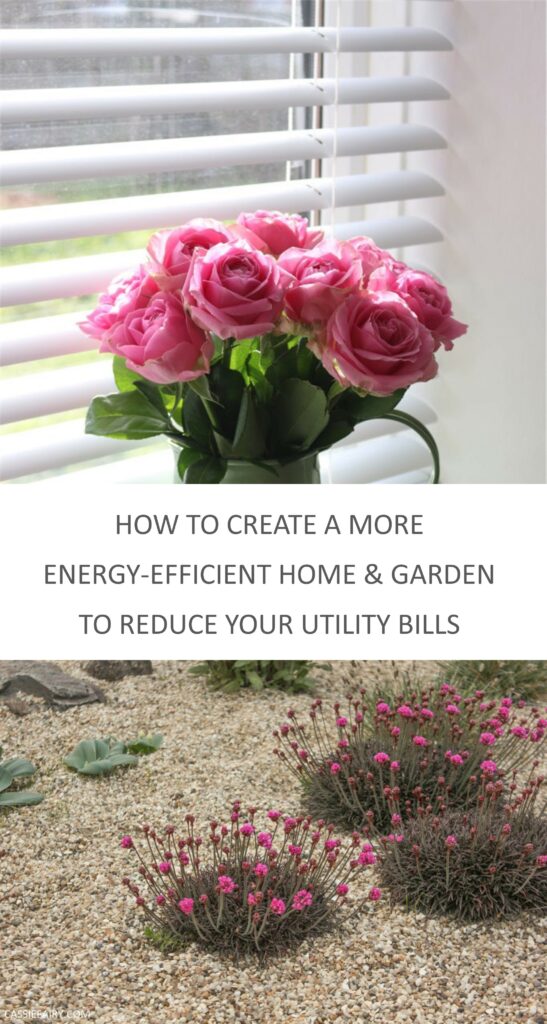
This article is a sponsored collaboration. The pink links in the content indicate a sponsored link or information source. The blog post reflects my own experience and the sponsor hasn’t had any control over my content 🙂







